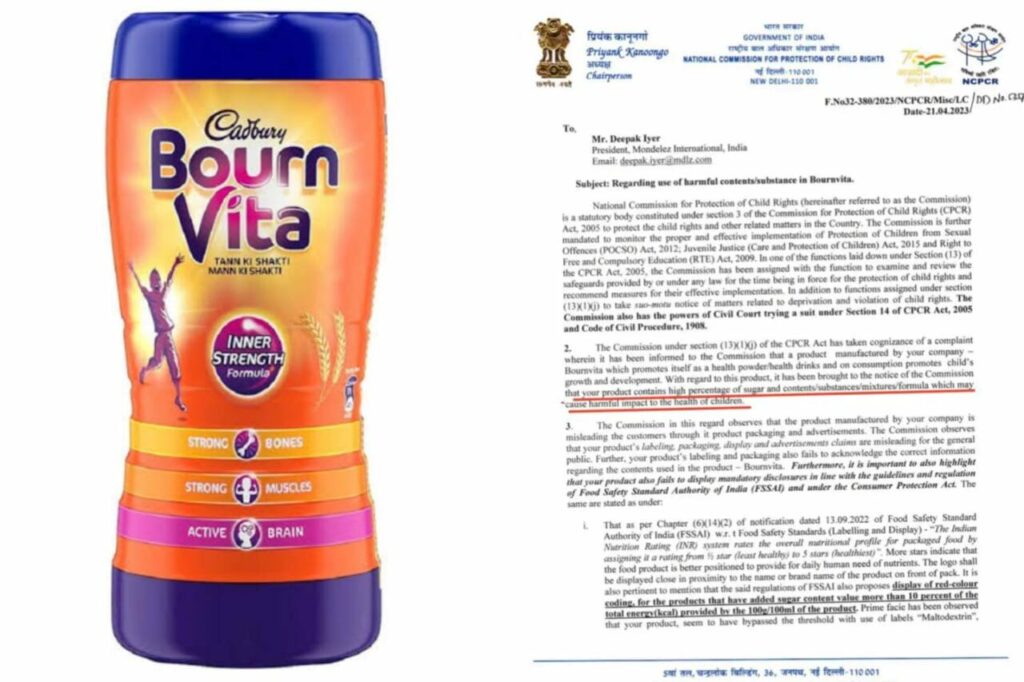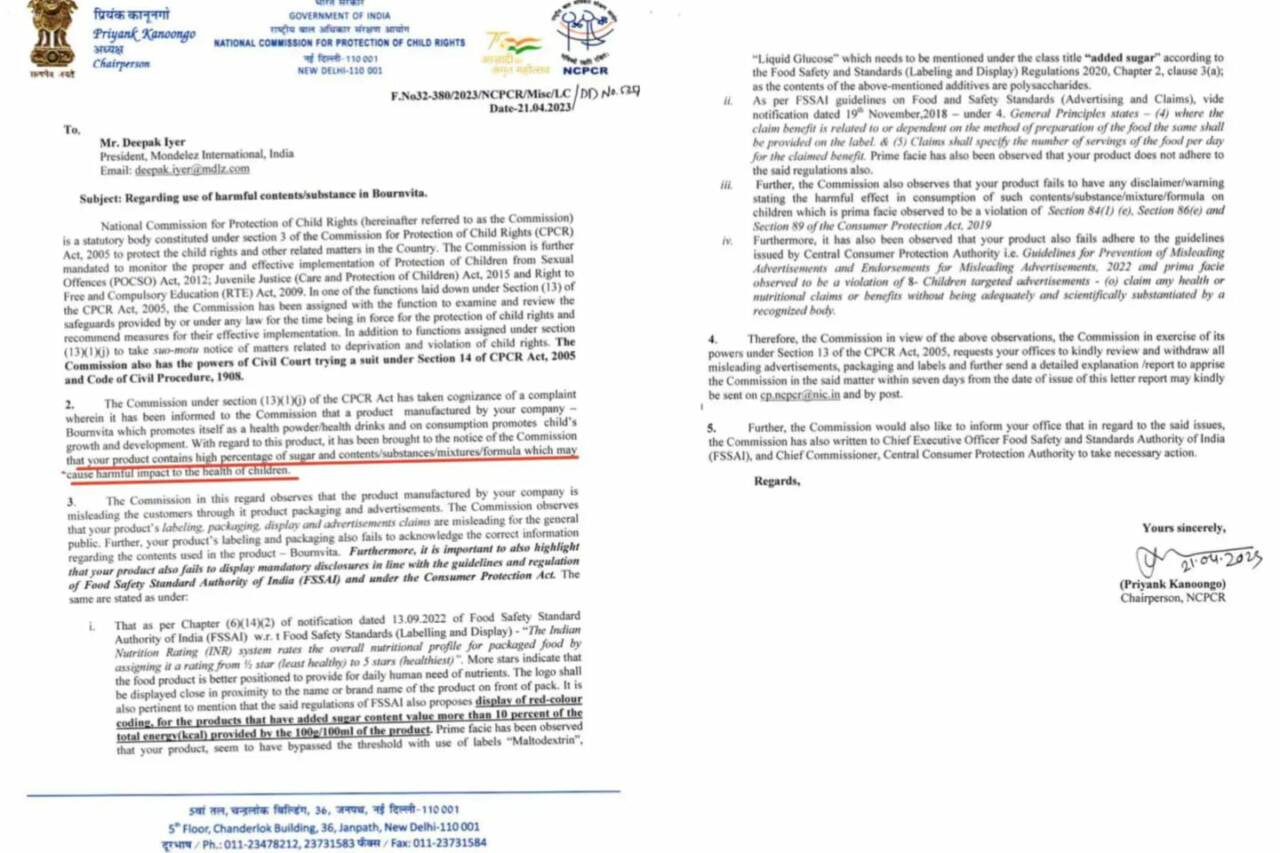
Is it healthy to eat Cadbury Bournvita? Everybody who has viewed the video of the man presenting “facts” about the “health drink” has undoubtedly been wondering about this. The majority of us enjoyed the chocolate drink as kids, and if the video is accurate, people are still consuming Bournvita now, thus this is a really significant issue. This is most likely the cause of the social media backlash to the popular video, which prompted the corporation to issue an explanation in a statement. BournVita Stripped of Health Drink Status: Excessive Sugar Content Revealed. Government advisory prompts reclassification of BournVita and similar beverages due to high sugar content, raising questions about health claims.
The Ministry of Commerce and Industry Takes Action
In a significant move, the Ministry of Commerce and Industry has issued an advisory to e-commerce companies, urging them to reclassify certain beverages, including BournVita, away from the health drink category. This action comes as a response to mounting concerns over the misleading portrayal of these products as healthy options.

Exposing the Sugar Trap
The catalyst for this reclassification was a social media influencer known as Food Pharma, who bravely exposed the alarming levels of sugar present in BournVita. Despite facing legal threats from the parent company, Mel India, Food Pharma’s revelation gained traction, prompting public outcry and official intervention.
Regulatory Gaps and Consumer Deception
Interestingly, the Food Safety and Standards Authority of India does not even have a clear definition for health drinks, leaving consumers vulnerable to deceptive marketing tactics. Products like BournVita, with their high sugar content, not only fail to deliver on their health promises but also pose serious risks to consumer health.
The Cost of Excessive Sugar Intake
Consuming these sugar-laden beverages can lead to a number of health issues, including diabetes, cancer, obesity, and even psychological disorders like depression. BournVita, for instance, contains a staggering 49.8g of sugar per 100g, far exceeding recommended daily intake levels.
Conclusion: Choose Health, Reject Deception
As consumers, it’s crucial to remain vigilant and informed about the products we consume. Even if the appeal of health drinks could be strong, it’s important to read labels carefully and make wise decisions for our health. Let’s join hands in demanding transparency and accountability from companies, ensuring that our health is not compromised for profit.

